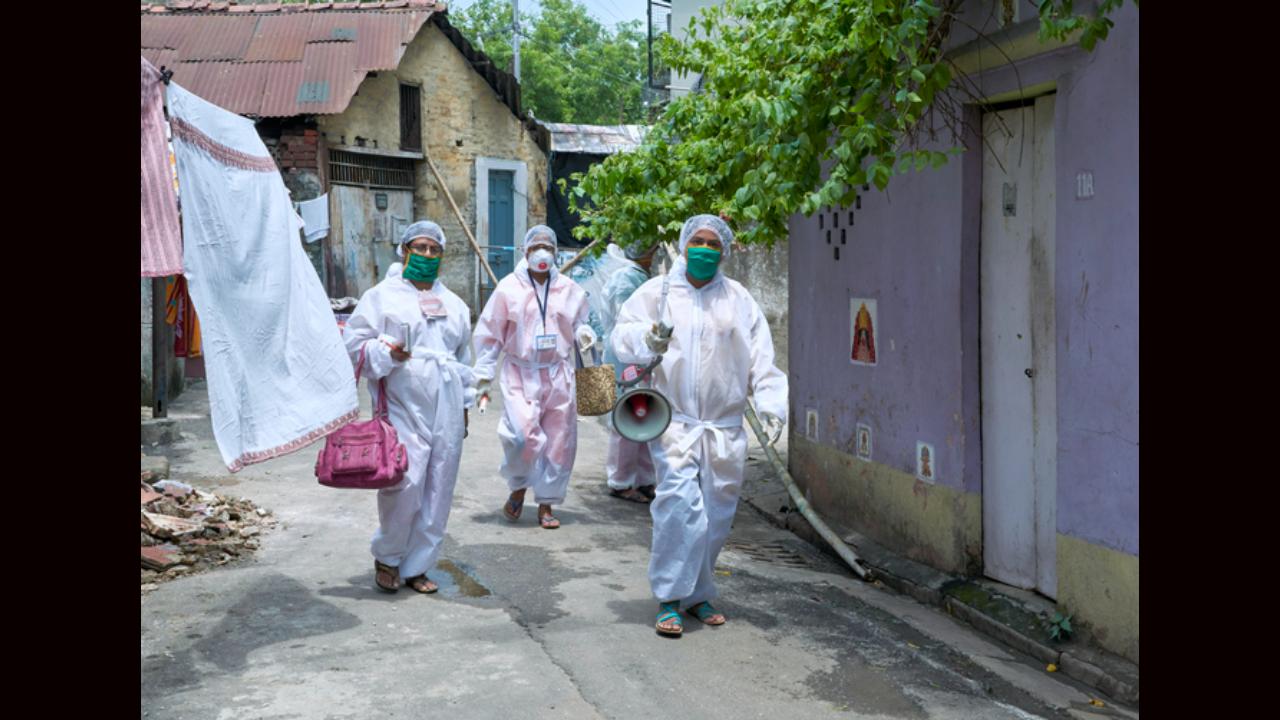The new study, published in the 'International Journal of Environmental Research and Public Health' found that health care workers with poor sleep were twice more likely to report symptoms of depression than their better-rested colleagues and were 50 per cent more likely to report psychological distress

Image for representation: iStock
In a recent study, researchers have studied the effect of the Covid-19 pandemic on healthcare workers' sleep patterns and the potentially damaging consequences of sleep disturbance on their mental health. The study has been published in the 'International Journal of Environmental Research and Public Health'.
ADVERTISEMENT
The new study found that healthcare workers with poor sleep were twice more likely to report symptoms of depression than their better-rested colleagues and were 50 per cent more likely to report psychological distress and 70 per cent more likely to report anxiety. That constellation of troubles could worsen the overlapping crises already enveloping health care.
"Right now, a large percentage of health care workers are leaving their jobs because of the stress, producing a shortage of health care workers nationally," said the studies' lead author Marwah Abdalla, MD, assistant professor of medicine at Columbia University Vagelos College of Physicians and Surgeons. "With fewer workers on the job, the remaining staff must work more and longer shifts, exacerbating their sleep problems and stress," Abdalla added.
It's hardly news that health care workers have been under immense stress during the COVID pandemic, something Abdalla, a cardiologist at Columbia University Irving Medical Center, has witnessed firsthand since early 2020. As a physician-scientist, she formed a team to study health care workers' reactions to stress, with a special emphasis on the pandemic's effects on sleep.
During the pandemic's first peak in New York City, she and her colleagues conducted a series of surveys of health care workers' sleep habits and psychological symptoms. The group's first paper, published in August, summarized the sleep data, showing that over 70 per cent of health care workers had at least moderate insomnia symptoms during the pandemic's first peak. Though that number declined alongside COVID case counts, nearly four in 10 still suffered from insomnia symptoms 10 weeks later when the first COVID wave was over and work schedules had returned to more normal levels.
Poor sleep not only affects patient care -- "We know that lack of sleep degrades the quality of care for our patients and can increase medical errors," said Abdalla -- but also may also trigger symptoms of depression and anxiety. In the second study, the researchers found that health care workers who reported poor sleep also reported higher levels of stress, anxiety, and depression than health care workers who slept better.
Although stress, anxiety, and depression can arise among well-rested individuals, "sleep is essential to mental health and there is a bidirectional relationship," Abdalla said. "While we don't know from this study if psychological distress itself caused poor sleep or if poor sleep resulted in psychological distress among these health care workers, improving sleep can reduce psychological problems and vice versa," she explained.
Abdalla added that if future studies can tease apart the direction of this relationship and the impact of poor sleep on mental health for health care workers during the pandemic, there may be several potential interventions, from cognitive-behavioural therapy for insomnia to increasing break room rest areas, and/or installing nap pods for hospital staff to use during long shifts. "For people who might be sleep-deprived, encourage them to go and lie down for 20 minutes or 30 minutes," Abdalla said.
Improved sleep won't alleviate all the extra stress that health care workers face but may help to improve mental and physical health. "Previous research has shown that sleep trouble increases your risk for chronic conditions such as heart disease, diabetes, dementia, and cancer. If you have trouble sleeping, let this be a wake-up call," said Abdalla.
This story has been sourced from a third party syndicated feed, agencies. Mid-day accepts no responsibility or liability for its dependability, trustworthiness, reliability and data of the text. Mid-day management/mid-day.com reserves the sole right to alter, delete or remove (without notice) the content in its absolute discretion for any reason whatsoever.
 Subscribe today by clicking the link and stay updated with the latest news!" Click here!
Subscribe today by clicking the link and stay updated with the latest news!" Click here!







